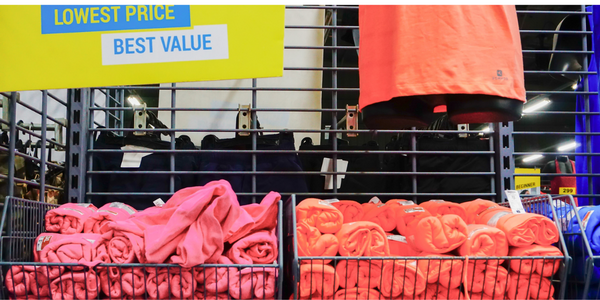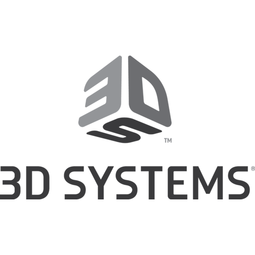
Technology Category
- Wearables - Augmented Reality Glasses, Headsets & Controllers
Applicable Industries
- Equipment & Machinery
- Glass
Use Cases
- Additive Manufacturing
- Virtual Prototyping & Product Testing
Services
- Testing & Certification
The Customer
Decathlon
About The Customer
Decathlon is the world’s largest sporting goods retailer. The company was facing a challenge with a mold injection problem on a small component for shooting glasses that connects the frame to the lenses. In order to solve this problem and increase efficiency in production, Decathlon decided to test the new 3D stacking solution developed by 3D Systems. After conducting a feasibility study, the company confirmed the productivity and economics of additive manufacturing and decided to use this solution for batch-run production of the final product. Decathlon’s additive manufacturing lab (ADDLAB) uses 3D Systems’ Figure 4 3D printing solution across a range of applications.
The Challenge
Decathlon, the world’s largest sporting goods retailer, was faced with a mold injection problem on a small component for shooting glasses that connects the frame to the lenses. The company was seeking a solution that would avoid the expense of tooling and increase efficiency in production. They decided to test the new 3D stacking solution developed by 3D Systems to evaluate additive manufacturing for production. After conducting a feasibility study on the Figure 4 solution and stacking feature, Decathlon’s teams confirmed the productivity and economics of additive manufacturing and decided that this solution could be considered for batch-run production of the final product.
The Solution
Decathlon’s additive manufacturing lab (ADDLAB) uses 3D Systems’ Figure 4 3D printing solution across a range of applications, and is now considering using the new high density part stacking capability of 3D Systems’ 3D Sprint software to facilitate direct production. The new stacking feature helps users print high volume batches with an efficient file preparation workflow. To use the stacking feature, users import a part and base file, define the stack in terms of orientation and part quantities, and use automated tools to replicate consecutive vertical stack layers and supports. Decathlon is using the Figure 4® PRO-BLK 10 material for this functional eyeglass component, citing the material’s strong rigid properties and fast print speeds as key benefits. The Figure 4 Modular system is used to print stacks of 100 parts in 85 minutes, which is equivalent to just 42 seconds per part. The high-density stacking capability of Figure 4 brings efficiencies of scale to post-processing as well as part building, allowing Decathlon to treat a batch of parts the same as a single part.
Operational Impact
Quantitative Benefit

Case Study missing?
Start adding your own!
Register with your work email and create a new case study profile for your business.
Related Case Studies.

Case Study
Smart Water Filtration Systems
Before working with Ayla Networks, Ozner was already using cloud connectivity to identify and solve water-filtration system malfunctions as well as to monitor filter cartridges for replacements.But, in June 2015, Ozner executives talked with Ayla about how the company might further improve its water systems with IoT technology. They liked what they heard from Ayla, but the executives needed to be sure that Ayla’s Agile IoT Platform provided the security and reliability Ozner required.

Case Study
IoT enabled Fleet Management with MindSphere
In view of growing competition, Gämmerler had a strong need to remain competitive via process optimization, reliability and gentle handling of printed products, even at highest press speeds. In addition, a digitalization initiative also included developing a key differentiation via data-driven services offers.

Case Study
Predictive Maintenance for Industrial Chillers
For global leaders in the industrial chiller manufacturing, reliability of the entire production process is of the utmost importance. Chillers are refrigeration systems that produce ice water to provide cooling for a process or industrial application. One of those leaders sought a way to respond to asset performance issues, even before they occur. The intelligence to guarantee maximum reliability of cooling devices is embedded (pre-alarming). A pre-alarming phase means that the cooling device still works, but symptoms may appear, telling manufacturers that a failure is likely to occur in the near future. Chillers who are not internet connected at that moment, provide little insight in this pre-alarming phase.

Case Study
Premium Appliance Producer Innovates with Internet of Everything
Sub-Zero faced the largest product launch in the company’s history:It wanted to launch 60 new products as scheduled while simultaneously opening a new “greenfield” production facility, yet still adhering to stringent quality requirements and manage issues from new supply-chain partners. A the same time, it wanted to increase staff productivity time and collaboration while reducing travel and costs.

Case Study
Integration of PLC with IoT for Bosch Rexroth
The application arises from the need to monitor and anticipate the problems of one or more machines managed by a PLC. These problems, often resulting from the accumulation over time of small discrepancies, require, when they occur, ex post technical operations maintenance.

Case Study
Robot Saves Money and Time for US Custom Molding Company
Injection Technology (Itech) is a custom molder for a variety of clients that require precision plastic parts for such products as electric meter covers, dental appliance cases and spools. With 95 employees operating 23 molding machines in a 30,000 square foot plant, Itech wanted to reduce man hours and increase efficiency.



